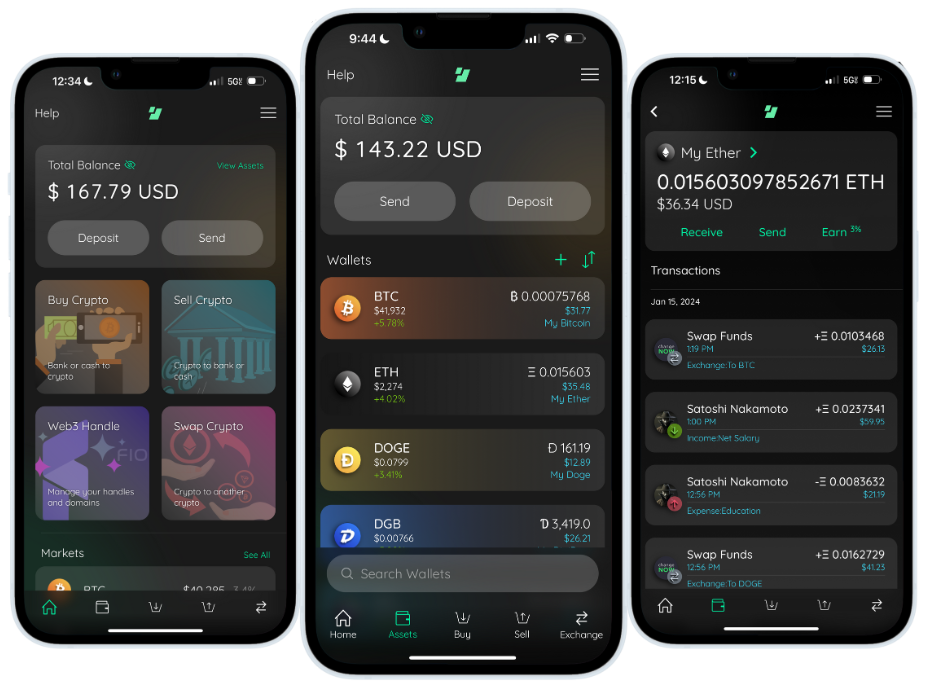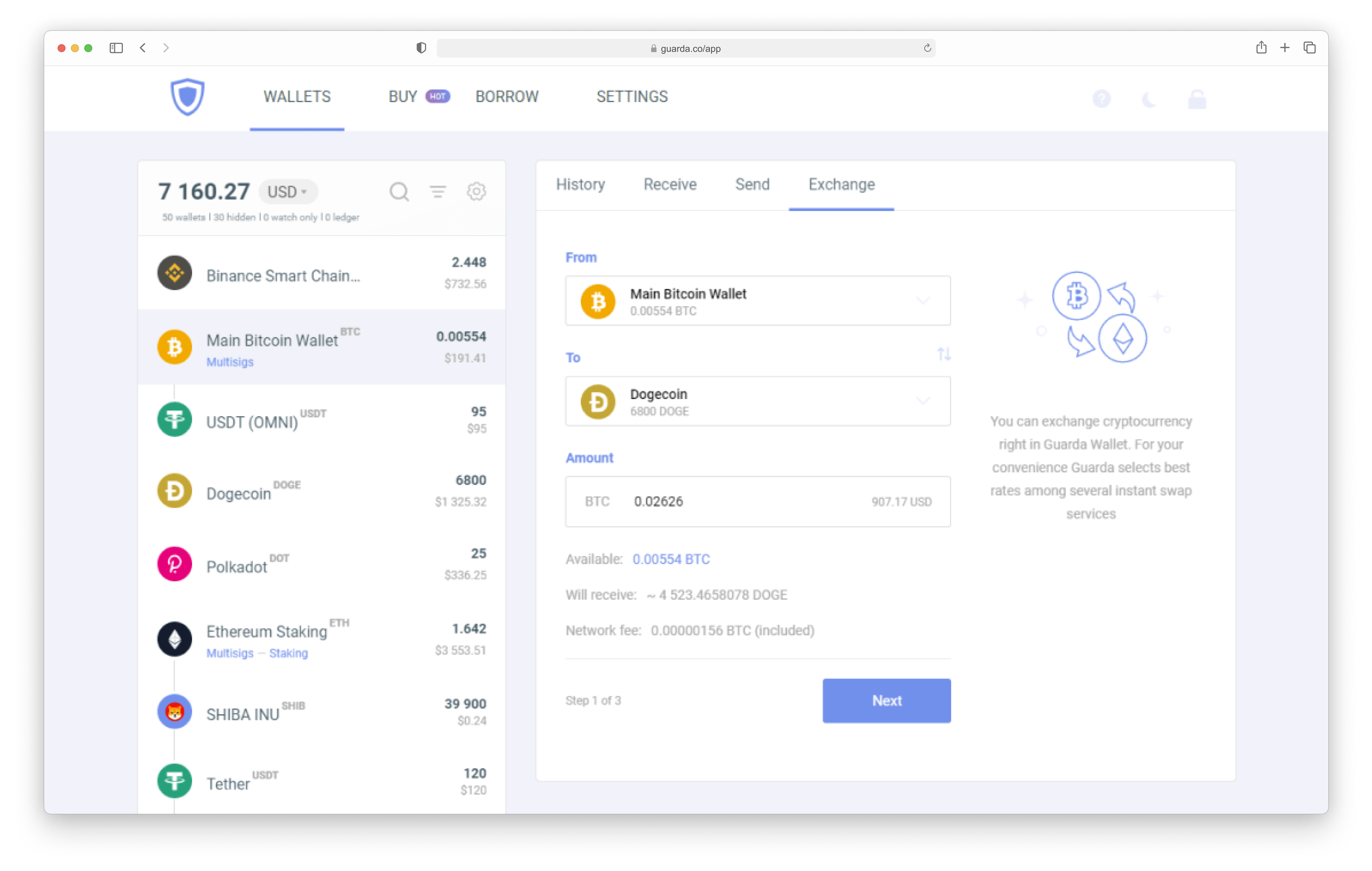More and more people invest in cryptocurrencies, and keeping your digital assets protected is vital whether you are a beginner or an experienced trader. The first and fundamental decision is to determine which crypto wallet type will suit best. From such classifications, mobile and desktop wallets are among the most famous, but every type has its own peculiarities. In this article, we will discuss both mobile and desktop wallets further to ensure you can determine which is the most suitable for use.
What is a Crypto Wallet?
A cryptocurrency wallet is one of the types of digital wallet that is generally used to store, transfer, and receive cryptocurrency. Primarily, wallets come in two forms: hot wallets and cold wallets. Many downloadable mobile and desktop wallets are hot because they are online, which means they are easier to utilize, but the danger of Internet-related threats is higher. Now, let us delve deeper into the mobile and desktop crypto wallets for better decision-making.
Mobile Crypto Wallet: Convenience on the Go
Advantages of Mobile Wallets
- Portability and Accessibility: The best feature of mobile wallets is that they are very portable. Due to the fact that most people carry their smartphones, you can access your crypto wallet at any given time and from any place. Mobile wallets thus prove highly convenient for easy transactions or checking the balance on the go.
- User Friendly: Mobile wallets are made simple and gentle, designed generally with the simplicity in mind. They provide intuitive interfaces and easy instructions; therefore, mobile wallets are usually best for newbies. Features like QR scanning for payment make sending crypto quick and easy.
- Integration with Mobile Applications: Most mobile wallets have facilities for integrating with other apps, such as exchanges or even other financial tools. This will help streamline some of the actions associated with buying, selling, or exchanging one’s crypto assets on the same app.
- Security Features: Online as a mobile app, there are several mobile wallets provided with high-security features, such as biometric authentication through fingerprints or facial recognition or even PIN codes that keep your private keys encrypted.
Disadvantages of Mobile Wallets
- Security Risks: There is a higher risk of hacking, phishing attacks, and malware through mobile wallets if you do not use extra security measures such as two-factor authentication (2FA) or download suspicious applications. In the worst case, your phone gets lost, or someone steals it; therefore, with stolen phones and lost money, this service has another risk attached.
- Limited Space: Mobile wallets usually suffer from space problems, which prevents them from accommodating various cryptocurrencies and robust wallet functionalities. Additionally, most such mobile wallets require you to create a backup of your funds via cloud storage, which can be dangerous in case it is not highly encrypted.
- Battery and Performance Issues: Mobile wallets drain a phone’s battery because its existence is directly dependent on mobile device battery life, and extended usage means the quicker loss of phone battery life. Mobile devices also have less power as compared to a personal computer or laptop, so processing should be affected in certain parts of the wallet.

SEE ALSO: What Is a Hardware Wallet? Pros, Cons, and the Best Models in 2024
Desktop Crypto Wallet: Power and Control
Advantages of Desktop Wallets
- Enhanced Security. Desktop wallets are much more secure compared to mobile wallets since most users use an application on a personal computer, which is much less likely to be stolen or accessed fraudulently compared to a smartphone. Desktop wallets generally also allow you to control all your private keys, reducing thirdparty vulnerability risks.
- More Functionality: Desktop type wallets are normally developed with more enhanced functions and usually a single individual can contribute to various kinds of cryptocurrencies. If you’re long-term trading or otherwise have some experience with investing in cryptocurrency you will find that a desktop wallet is optimal for your needs because it has more account management tools, more customization options, and better account backup features.
- Total Control Over Your Private Keys: Many of these desktop wallets allow you to hold your private keys offline, hence making them relatively safer from hacking. You can store these keys on an external USB drive or a hardware wallet; thereby, giving you extra security.
- More Robust Backup Options: Desktop wallets generally offer more advanced mechanisms for creating a strong backup and recovery. They tend to provide more information on how you should safely back up your wallet, including multiple backups.
Disadvantages of Desktop Wallets
- Limited Mobility: However, desktop wallets remain associated with one device and unlike mobile wallets you can’t have any access to your money once you are not in front of your computer. If you or your business frequently travel, or if you frequently trade cryptocurrencies, a desktop wallet is not ideal.
- Risk of Malware: Although desktop wallets are mostly secure, your computer can still get malware if it isn’t protected well. If malware infects your computer, your private keys could get stolen or compromised.
- Complicated Setup for New Users: For newcomers, setting up a desktop wallet can be tricky. Depending on the wallet, you may need to add extra software or plugins, which makes it less simple for those not familiar with cryptocurrency.

Which One Should You Use?
Choose a Mobile Wallet if:
- You want ease of use and portability. Mobile wallets are best suited for an individual seeking to access money fast while on the move and would like to maintain their resources easy to manage.
- You are relatively new to cryptocurrencies and prefer straightforward and user-friendly wallets.
- You implement strong security such as biometric verification, and you practice good practices for instance, the use of secure passwords and enabling 2FA.
Choose a Desktop Wallet if:
- You require stronger security and full control over your private key.
- You are a high-end user who needs more functionalities in managing multiple wallets and has extended support for multiple cryptocurrencies.
- You want a more robust backup system so that even in case your computer fails, it can safely store your assets.
Conclusion
Both mobile and desktop crypto wallets have their own benefits and drawbacks, and the best choice depends on what you need. If you prefer convenience and simplicity, a mobile wallet is great. However, if you seek better security and more options, a desktop wallet may be more suitable. Some users may actually want a balance of the two. For example, you can have mobile wallets for quick transactions and use desktop wallets for safe, long-term storage. Which one you use, always keep security as your top priority-protect your private keys.
SEE ALSO: How to Use Technical Analysis Tools for Shiba Inu (SHIB) Coin Price Forecasts



